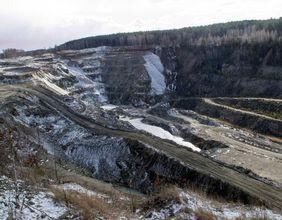Highlights
Advisory Committee leadership changes introduce U.S. uptake uncertainty for RSV and shingles vaccines
Medicare Part D redesign adds to immunisation programme cost structure for GSK PLC (GSK)
Proposed trade duties on active ingredients could affect production expenses and licensing fees
The pharmaceutical industry underpins public health initiatives through development and distribution of critical therapeutics and immunisation products. Companies in this area operate within intricate regulatory regimes and adapt to epidemiological trends. Vaccines remain a cornerstone of preventive healthcare, representing significant revenue streams for multinational firms. GSK PLC (LSE:GSK) holds prominent positions in respiratory syncytial virus prevention and herpes-zoster immunisation, offering insight into how policy shifts and cost structures shape sector outcomes.
U.S. Advisory Leadership and Immunisation Outlook
Advisory Committee on Immunization Practices appointments influence vaccination schedules in the United States. The chair under Robert Kennedy Jr. has prompted debate over scientific data and inclusion criteria. That body’s recommendations inform coverage policies and interplay with state immunisation programmes, introducing uncertainty around adoption levels for key vaccine products.
Vaccine Franchise Performance Trends
Sales volumes for the RSV vaccine Arexvy and the shingles vaccine Shingrix have shown variation across markets. Uptake in the United States has tracked below earlier levels, while performance in China reflects local regulatory priorities. Fluctuations in sales for those franchises affect revenue mix and operating results as GSK navigates shifting demand patterns across regions. That dynamic drives adjustments in manufacturing allocations and market activation efforts.
Financial Impact of Medicare Part D Redesign
Revisions to Medicare Part D benefit structures have increased spending obligations under US public insurance plans. The redesign alters formulary placement and out-of-pocket coverage, affecting treatment persistence and charity assistance programmes. GSK will detail updated cost figures in its interim reporting, reflecting changes in reimbursement mechanisms and manufacturer rebates under the new framework.
Trade Duty Proposals and Cost Structures
Proposed trade duties on active pharmaceutical ingredients have prompted reviews of supply-chain models. Final wording on tariff coverage remains pending. Duties on imported components have the effect of increasing landed expenses, prompting manufacturers to explore alternative sourcing for critical vaccine inputs. Discussions have focused on whether charges will extend to royalty streams linked to technology licensing and contract-manufacturing agreements.
Regulatory Landscape Compared with EU Peers
Within the European cohort, GSK’s share of vaccine revenues stands among the highest, second only to one major competitor. Peers with broader product mixes have absorbed policy shifts across therapy lines more evenly. In contrast, GSK’s concentration in immunisation revenues highlights sensitivity to advisory-programme changes and funding model adjustments. That sensitivity underscores the importance of diversified portfolios when navigating evolving regulatory environments.





